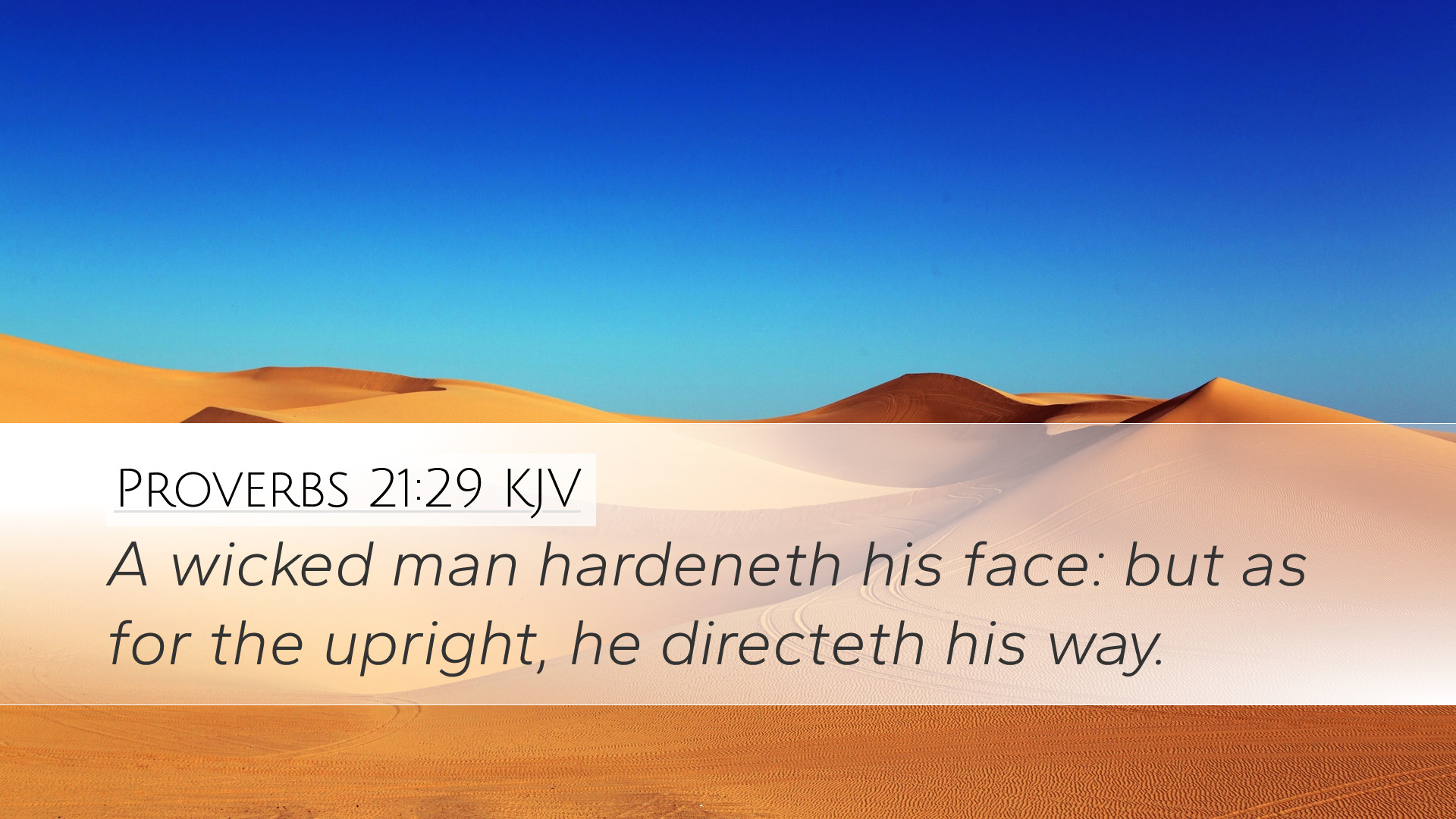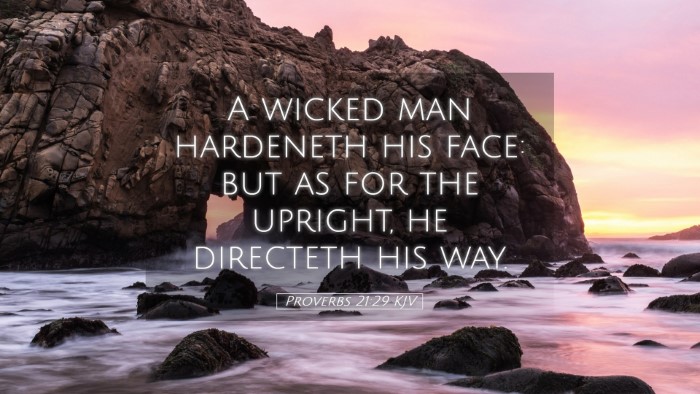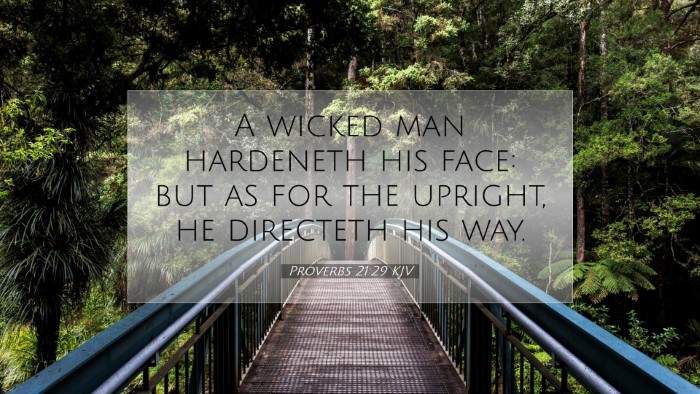Commentary on Proverbs 21:29
Proverbs 21:29 states, "A wicked man hardens his face, but as for the upright, he establishes his way." In this verse, we find an insightful contrast between the wicked and the upright, each exhibiting distinct attitudes towards their moral and ethical lives. This commentary will draw from notable public domain commentaries, providing depth and clarity for pastors, students, theologians, and Bible scholars.
Contextual Background
The Book of Proverbs is a collection of wise sayings, primarily attributed to King Solomon, designed to impart practical wisdom and guidance for righteous living. This particular chapter addresses themes of righteousness, justice, and the contrasting behaviors of the wicked versus the righteous.
Exegesis of Proverbs 21:29
Matthew Henry emphasizes the characteristics of the wicked man, noting that he "hardens his face." This phrase implies a boldness in sinning, demonstrating a refusal to show remorse or to acknowledge wrongdoing. The hardening signifies a callousness and unrepentant state, which leads him to present a facade of bravado in the face of moral failings.
In contrast, he highlights the concept of the upright who "establishes his way." This reflects a commitment to righteousness and integrity. Unlike the wicked, the upright individual is attentive to their moral path and diligently works to ensure that their actions align with godly principles. The upright’s establishment of their way suggests a deliberate choice to live in accordance with divine wisdom.
Insights from Albert Barnes
According to Albert Barnes, this verse illustrates the moral consequences of one’s character. The wicked man’s hardened demeanor indicates a deeper issue; his defiance of God and moral laws manifests in his boldness. Barnes argues that such individuals often become brazen in their behaviors, making the maintenance of integrity increasingly difficult for themselves and others around them.
Barnes further discusses the idea of the upright man establishing his way. He notes that this “establishing” entails both a recognition of one's moral responsibilities and an active pursuit to adhere to them. This requires reflective self-examination and an ongoing commitment to align one’s life with God’s righteous standards.
Adam Clarke’s Perspective
Adam Clarke provides a distinctive perspective by examining the spiritual implications of this verse. He argues that the hardening of one's face is not just a psychological phenomenon, but it also signifies a spiritual blindness. The wicked man’s inability to perceive his own failings leads to a deepening of his moral depravity.
Clarke emphasizes the transformational potential for the upright individual, stating that "to establish one's way" is indicative of a life that is consistently aligned with divine direction. This alignment not only results in ethical living but also brings forth spiritual stability and guidance in times of trial and tribulation.
Theological Reflections
-
Contrasts in Character:
Proverbs 21:29 serves to highlight the stark differences between those who choose wickedness versus those who pursue righteousness. This is reflective of a broader biblical theme encountered throughout Scripture, which underscores the dichotomy of the righteous and the wicked.
-
Call to Self-Examination:
This verse invites readers to engage in self-reflection regarding their own lives. Are we reflective and humble in our conduct, or have we hardened our hearts against the truths of God’s Word?
-
Encouragement for the Righteous:
For the upright, there is an assurance of God’s guidance. Establishing one’s way is not merely a personal endeavor but is sustained by the grace and wisdom that God provides.
Practical Applications
For pastors and theologians, this verse serves as a foundation for preaching and discipleship, encouraging believers to pursue integrity. The wisdom literature of the Bible reminds the faithful that the paths we choose resonate beyond our immediate contexts, influencing families, communities, and churches.
For students and scholars, Proverbs 21:29 encourages deep study and reflection, urging examination of one’s motives and actions in light of biblical teachings. It challenges scholars to explore the implications of this contrast in character within a contemporary setting, both within individual lives and societal structures.
Conclusion
Proverbs 21:29 offers profound insights into the nature of sin and righteousness. Through analysis of this verse, drawing upon the teachings of Matthew Henry, Albert Barnes, and Adam Clarke, we gain a richer understanding of the inherent contrasts between wickedness and uprightness. The call to establish our ways in righteousness remains relevant today, providing both a challenge and an encouragement to live lives that reflect the heart of God.


